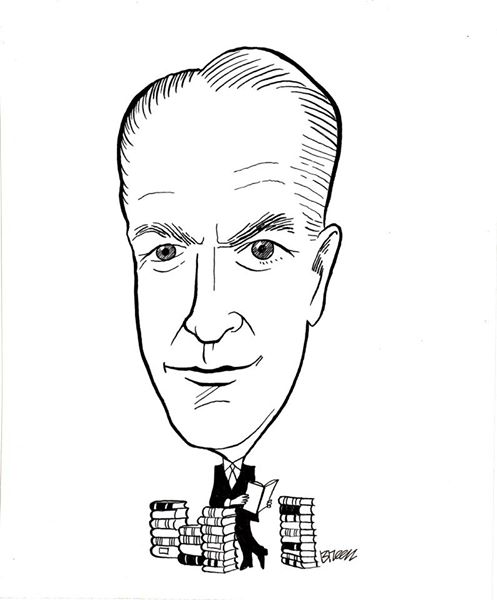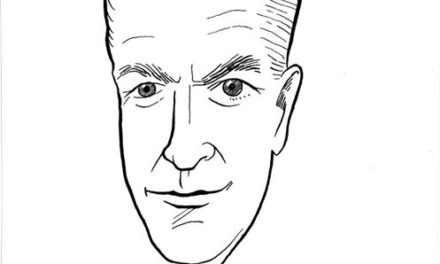Twenty years ago I published a book entitled, Happiness and the Limits of Satisfaction. It was a product of my academic years, making the book somewhat formidable to the average reader. However, a few good friends got through it, liked it, one of whom, the late Leo Linbeck, Jr., sent a copy to then President Bill Clinton.
Before writing, I spent ten years reading everything I could find about happiness, covering philosophy, theology, psychology, sociology, and literature. I was driven by one basic question: When did the idea of happiness stop being an ethical concept and start being a description of positive or satisfying states of being, what could be called broadly a psychological concept?
The ancients considered it impossible to call a man “happy” without that man also being virtuous. In fact, it is primarily because of a character shaped by good moral habits that anyone in the ancient world would have been moved to apply the word “happy” to him. Virtue was a prerequisite. Calling someone “happy” was to pay them the highest tribute, an accolade.
That happiness required virtue is the reason why someone could be called happy by the ancients while being tortured in the “Bull of Phalaris.” But during the Renaissance a subtle shift came; the first record of it I found was in a poem by Lorenzo de Medici. Happiness was no longer considered an attainment of character formed by virtue but rather the experience of seeking after one’s goal in life, whatever that goal might be. Happiness was, as they say, found in the journey, not arriving at the destination.
That decisive shift led to happiness being considered as a subjective state, known by introspection, of a heightened state of emotions, intense pleasures, intoxicating passions, or the less exciting state of deep and peaceful satisfaction. When the search for happiness became subjective, a person could imagine happiness in any form that suited their personal wants and desires. Nowadays we are expected to consider a person happy when he tells us so.
It was natural to the historical development of happiness as an idea, however, that the ancient meaning would still echo through its subjective replacement, creating a huge confusion. These subjective states, now called “happiness,” were intertwined with the moral authority of its ancient usage. A person who had attained modern subjective happiness thought himself as having arrived at his moral ideal as well, in spite of the fact that subjective happiness tends to be rather transitory.
Thus, and most disastrously, subjective happiness became the justification for moral action. For example, how many times have we heard someone say, “I am doing X because Y no longer makes me happy.” X can be changing jobs, leaving a family, joining a church, quitting school, starting school, taking dance lessons, traveling to France, etc. All the justification a person needs to make an important life choice is to report the presence or lack of subjective happiness; a happiness, by the way, which no one can scrutinize. Any objection to the morality of an action hits against the wall of a person’s privileged inwardness.
Values became relative when the touchstone of the moral life — happiness — was dissolved into the plethora of emotions, passions, and feelings that make up our subjective experience. With relativism, talk about happiness became so messy that those who try to study it seriously deployed the phrase “well-being” in its place.
Changing the words, however, has not brought any greater clarity into the discussion, since book after book about happiness avoids basic ethical issues raised by comparing ancients and moderns.
In my book, I did more than trace the evolution of happiness through these shifts and document its impact on ethics and politics. I suggested a way of retrieving a moral concept of happiness without ignoring human subjectivity, the way to search for happiness does impact our inner lives.
The key to seeing happiness once again as an ethical norm, I discovered, was to look closely at its relationship to suffering, which takes up three chapters of Happiness and the Limits of Satisfaction. This was crucial for the ancients and medievals as well, who were always arguing among themselves about how to place pain and pleasure in a happy life, whether they should be resisted altogether or moderated.
The Stoics and Epicureans, especially Cicero in his Tusculan Disputations, written after the death of his daughter, are eloquent on these issues. Boethius’ famed Consolation of Philosophy is nothing else but a struggle with the problem of pain and whether or not his life could be called happy while facing execution.
It finally occurred to me that much of the suffering in the life of morally good men and women arises from the same sources as their goodness. In other words, suffering is going to be inevitable to those persons who seek to live according to an objective moral standard; one that is open to scrutiny by others; one that is not insulated from criticism or even questions. Ignore, resist, or reject suffering and you are giving up on the goal of who you would become.
I concluded that happiness is passion of a certain kind but not the kind of passion immediately identified with romantic love or lust. Happiness is passion in the way a sudden religious conversion can change a person’s life. Suddenly you know something that changes everything that your entire life must be directed by.
Our actions, in fact, are always elicited by something acting upon them. Passion means being passively acted upon. But our actions are always elicited in this way, by our being acted upon. We trip and fall, our hands reach towards the ground. A sharp whistle, and we turn around to see what caused it. And so on. Imagine a stimulus that works upon us producing the passion to direct our entire life, all we do, all our actions.
Happiness is the encompassing passion, because it contains that stimulus in the form of the vision, representing who we want to be and what we want to do with our lives. Philosophers have spoken of our “natural desire” for happiness, meaning we cannot resist choosing an overarching vision of life that acts upon us in this way. To have a natural desire means we will choose whether we acknowledge that choice or not. And unacknowledged choices are precisely what philosophical reflection is designed to ferret out.
Some of these visions of life require a certain kind of suffering, a suffering integral to that life, and proof that the vision is earnestly being sought. Socrates himself suffered a death he could have easily avoided, because his ideal of happiness would not allow him to avoid it. And Christians can’t be reminded too much of these words, “Whoever wants to be my disciple must deny themselves and take up their cross and follow me” (Matthew 16.12).
This explains only a portion of the suffering we experience in the pursuit of a happy life. Aristotle explored in detail the kind of suffering that arrives as a matter of bad luck or fortune. Suffering of this kind — illness, failure, catastrophe, injustice — puts all our virtue to the test, especially fortitude, pursing the good in the midst of difficulty. But for Aristotle fortune can be so cruel it can ruin a man’s reputation and crush even a strong man’s will to live in goodness.
Looking back at a book written two decades ago, I would change some things, of course, but the basic thesis I would still defend. It’s not a waste of time to pursue positive feeling states, emotional highs, untroubled inner peace, but without these being grounded in the larger passion of what we call the search for happiness, they are distractions from the main business of life. More importantly, these distractions blind us to the nobility of suffering for a worthwhile purpose, of bearing a burden for a cause greater than ourselves. Purpose makes suffering meaningful and, therefore, easier to bear.
Beware of those who teach a hierarchy of happiness — there are no steps to climb, first mastering one set of temptations — lust, gluttony, greed — and passing on to deal with the higher ones — sloth, wrath, envy, and pride. The only way to put life in order is to live wholeheartedly and boldly, decide on what vision will pull you into the future, and let yourself be taken there.















great article
Still relevant subject